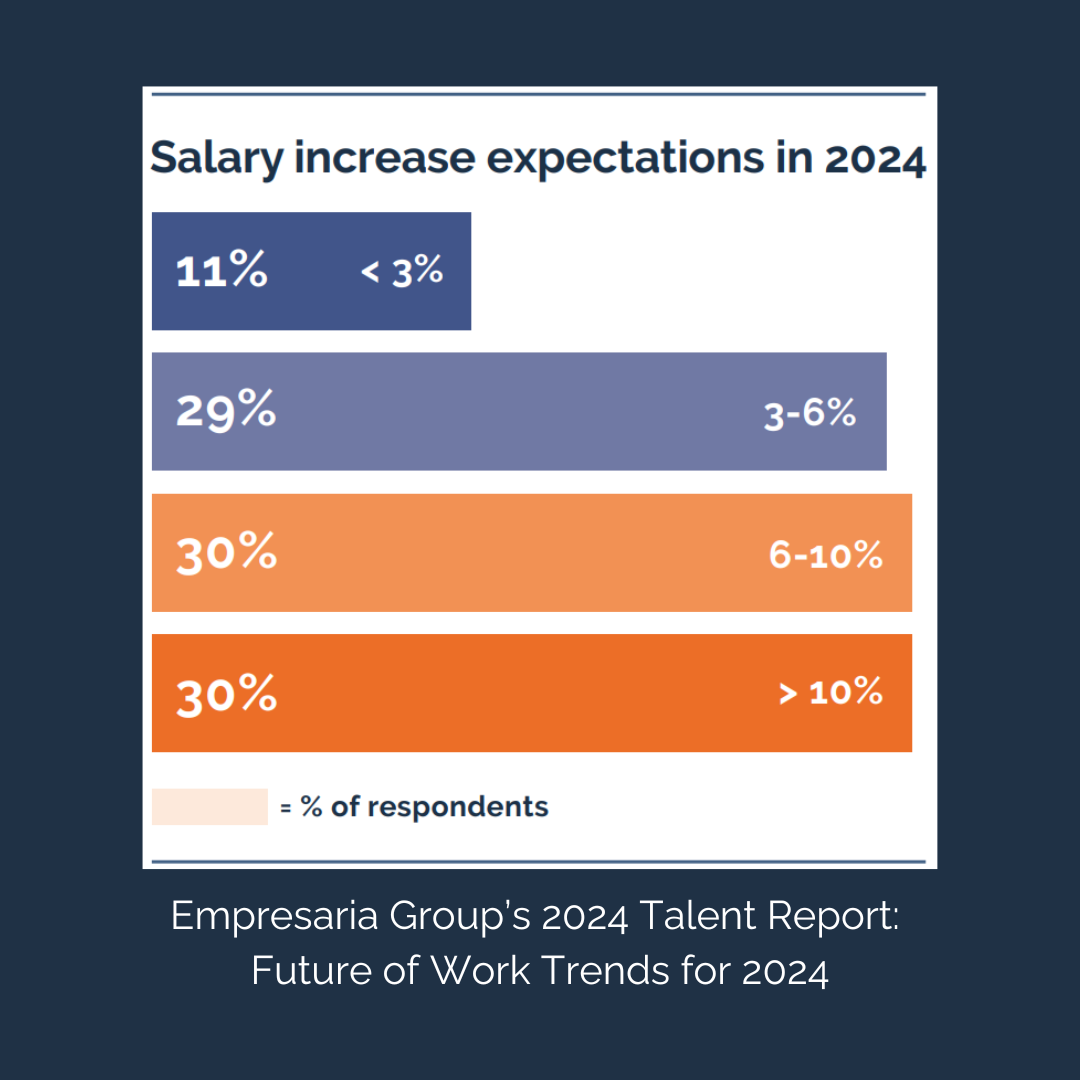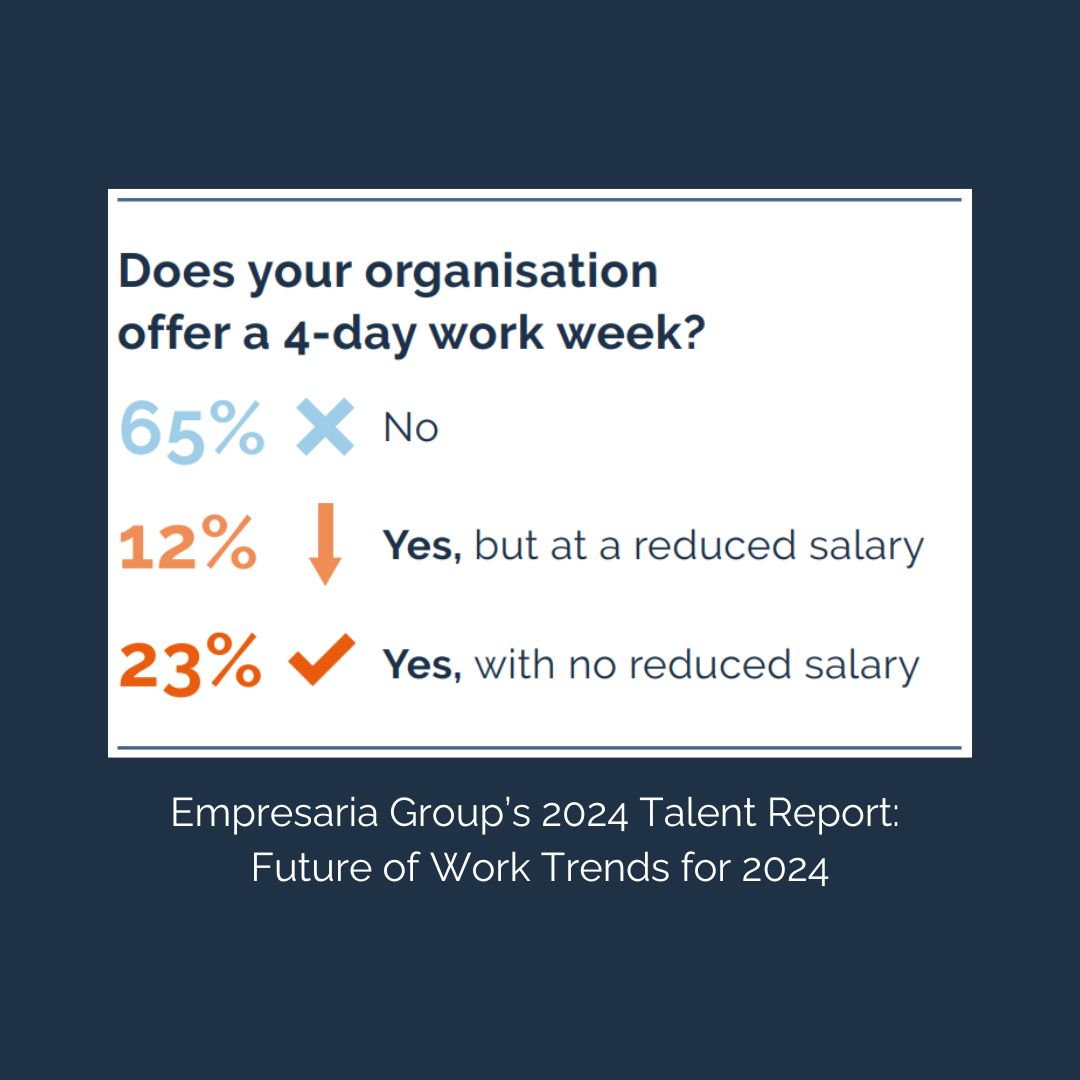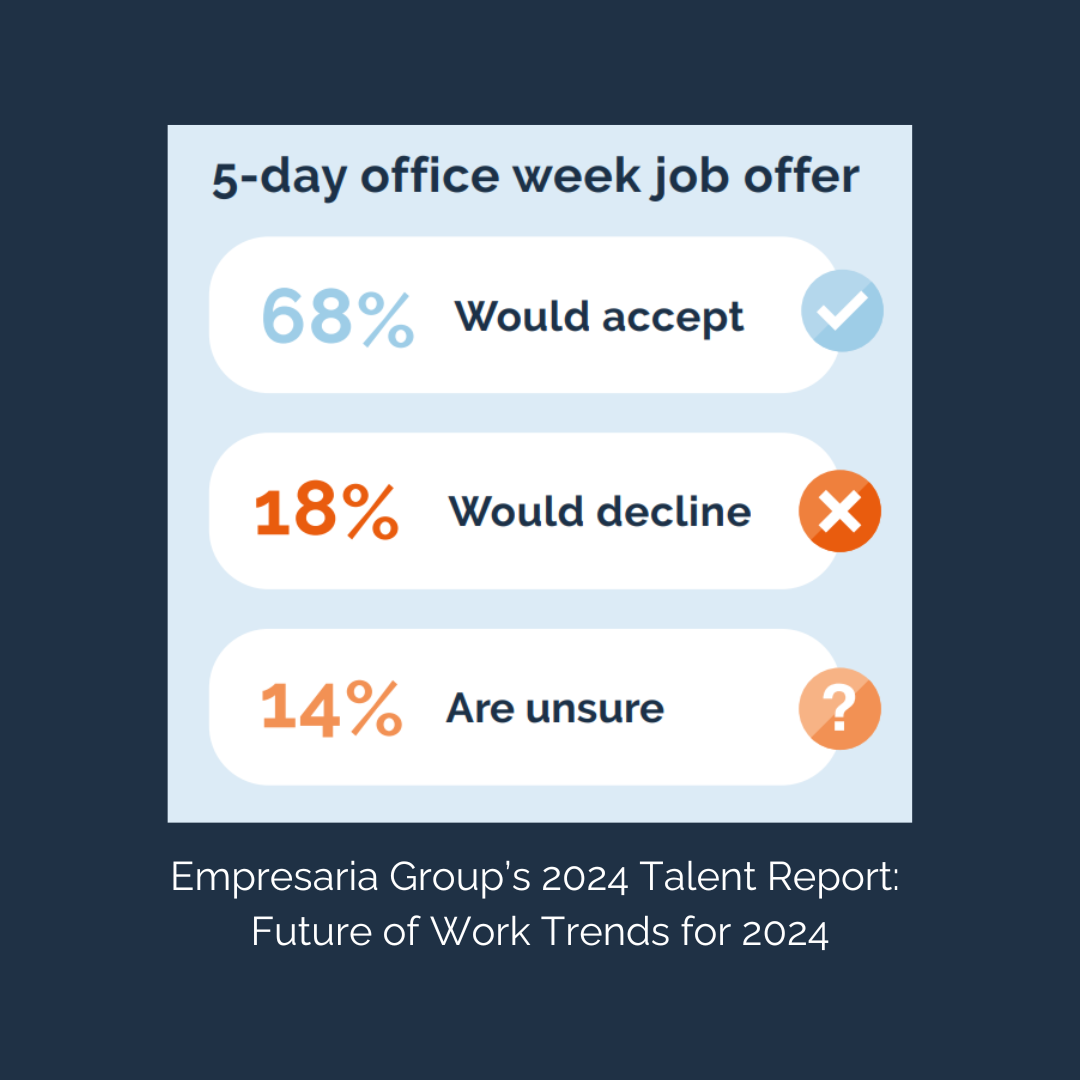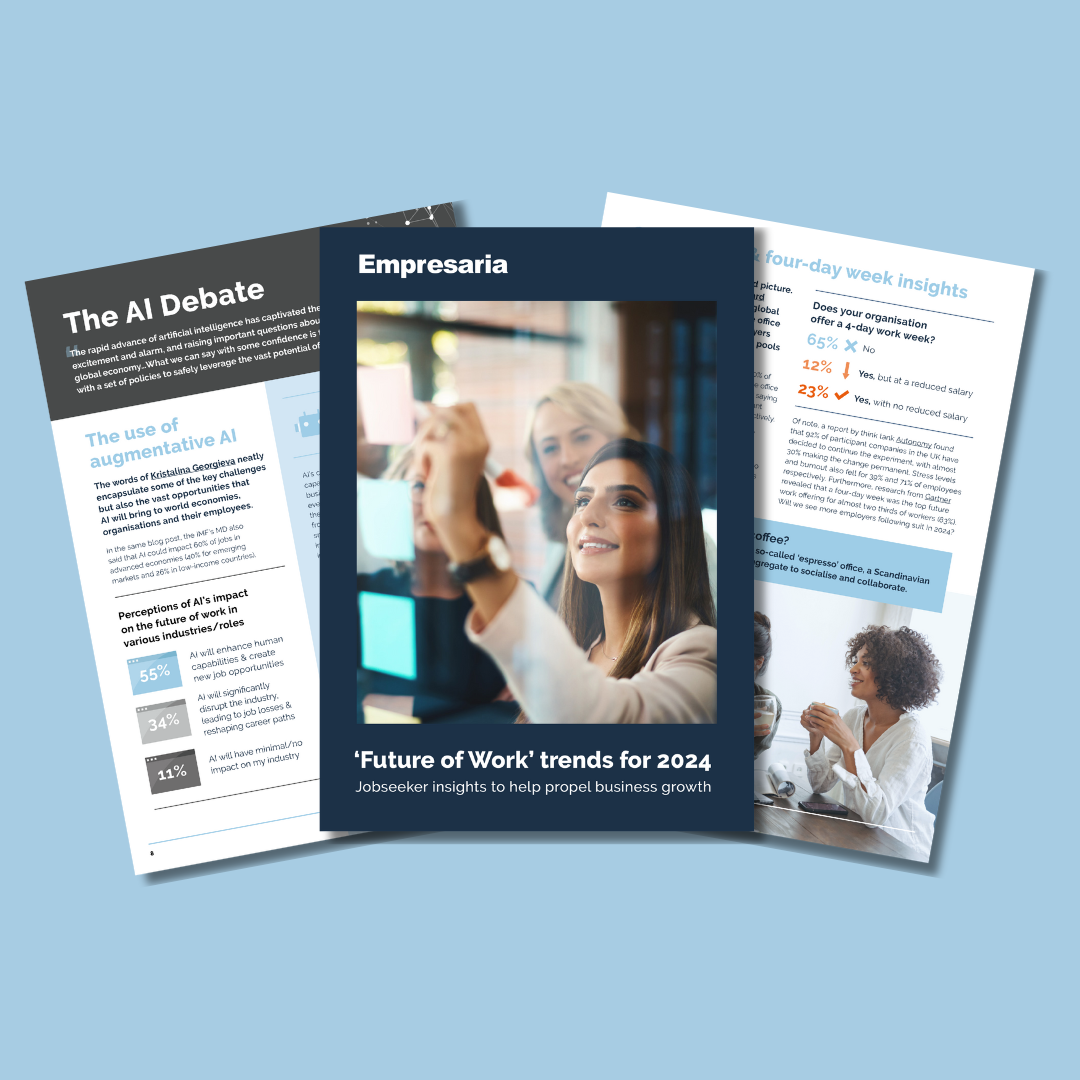Annual Talent Report: Future of Work Trends for 2024
Download our complete talent report today to discover the trends influencing employee decisions and shaping the workplace.
June 10, 2024 by Magaly Sandiford

Empresaria Group recently conducted a survey of nearly 6,000 employees from different generations and industries around the world. The aim was to understand the top factors influencing employees to stay in or leave their current roles.
The survey explored the key factors that motivate employees to join a new organisation as well as the main drivers behind their decision to leave their employers.
The top reasons for seeking change included salary, poor management style, and lack of promotional opportunities. When evaluating new job offers, respondents highlighted salary, work-life balance, and the option for hybrid working as the most important factors.
Exploring the expectations of today's job seekers, we dig deeper into the data and analyse the key factors job seekers prioritise when deciding to join a new company.
When asked to select the three most important factors in deciding whether to join a new organisation, 73% of respondents chose 'Salary.'
While less than half of the respondents expressed satisfaction with their current pay (47%), a majority (61%) received a salary increase within the last year, either in their current roles or upon changing jobs.
Among those who received a raise, 60% saw their salaries rise by less than 6%, with 3-6% being the most common increase. Additionally, 40% received even larger raises, with just over a fifth enjoying an increase of more than 10%.
This trend underscores the importance of competitive compensation packages in attracting and retaining talent.
A whopping 82% of job seekers expect a salary increase within the next 12 months, with the majority (60%) hoping for an increase of more than 6%. While slightly below last year's levels, these figures indicate that salary remains a critical factor for employees considering a job change.

More than ever, people are striving for a healthy work-life balance, so it's no surprise that this was a top factor among respondents when deciding to join a company.
When asked about the much-discussed '4-day week,' almost two-thirds (65%) of respondents reported that their current organisation do not offer this arrangement. However, among those that do, 23% continue to pay their employees the same salary for a day's less work.
But coming back to the term work-life balance, what exactly does this term mean to workers today? The definition of work-life balance has evolved dramatically over the past few years, with the decline of strict 9-to-5 hours and the increase in remote work.
Flexible schedules are a major part of how workers define work-life balance, but the concept has broadened. Instead of simply clocking out at 5 pm, work-life balance now encompasses a more individualised approach. It is no longer a one-size-fits-all equation.
In this new era, workers view work-life balance as the ability to tailor work around their own priorities. Employees themselves now define what constitutes 'balance,' rather than companies. The personal freedom to work when, where, and how best suits individual needs has become a new imperative for the workforce.

This leads to the next top factor: hybrid work or the ability to work from anywhere. With this approach, employees are not restricted to a traditional office or fully remote setup. Instead, they operate in a space that combines the best of both worlds, promoting a better work-life balance, opportunities to collaborate, socialise, and network, and reduced commuting costs.
However, the evidence presents a mixed picture. When respondents were asked if they would be willing to work in an office five days a week, 68% answered yes, 18% said no, and 14% were unsure. And yet, when asked about the main driver for seeking a new job, 'a lack of flexibility’ ranked high on the list. This indicates that while the majority may be open to traditional work arrangements, companies that require a full-time office presence may find it challenging to attract top talent.
On the other hand, it’s important to recognise that the feasibility of hybrid work varies across industries and roles. Certain sectors, such as healthcare and construction, may not allow for remote work due to the nature of the job. Implementing hybrid work arrangements is trickier in these industries and may depend on the roles.
There are benefits for employers too. A hybrid setup can offer the opportunity to downsize and reduce the costs associated with maintaining a traditional office. However, implementing a hybrid work schedule requires a thought-through approach to managing workflow across teams, locations, and time zones.

It is essential for employers to effectively promote their employee value proposition (EVP) to attract top talent. Empresaria Group's research shows that while salary is important, it is not the sole factor. Compensation is closely tied to opportunities for growth, development, and recognition. In addition to pay, poor management and limited chances for advancement are top reasons why employees leave their jobs.
Addressing the main priorities of job seekers when they are considering a new role is important to attract and retain talent. Apart from competitive pay, job seekers are increasingly interested in organisations that offer better work-life balance, hybrid work models, and focus on employee well-being and flexibility.
Aligning your EVP with these important factors can help create a strong proposition that not only draws in top talent but also boosts employee engagement, satisfaction, and long-term retention. These are essential strategies for organisations aiming to succeed in today's competitive talent market.

Annual Talent Report: Future of Work Trends for 2024
Download our complete talent report today to discover the trends influencing employee decisions and shaping the workplace.


Empresaria is an international specialist staffing group operating from 15 countries across 6 diversified sectors. Our purpose is to positively impact the lives of people, while delivering exceptional talent and solutions to our clients.
Empresaria Group plc
Old Church House, Sandy Lane, Crawley Down, Crawley, West Sussex, RH10 4HS, United Kingdom
Registered in England and Wales No. 03743194
VAT Number GB 672 5572 15
Quick Links
Our Sectors
© Copyright 2024 Empresaria Group plc. All rights reserved.